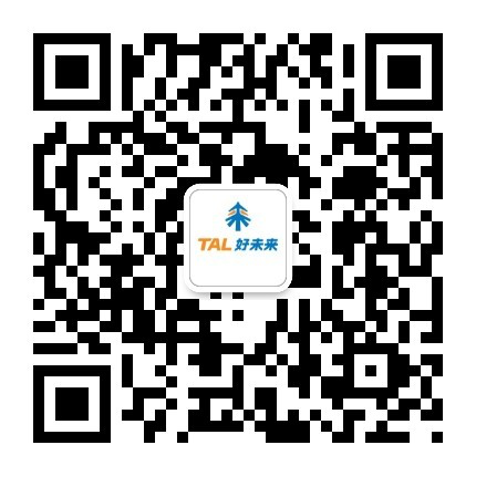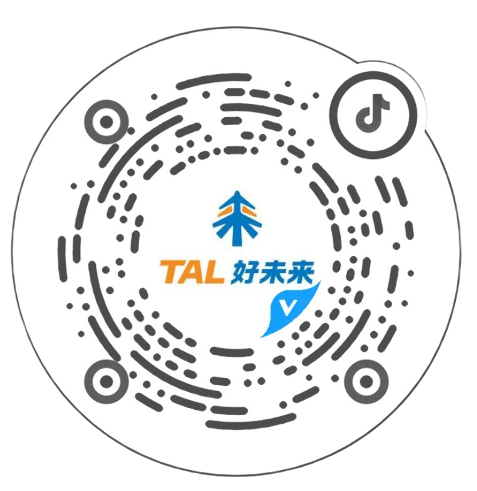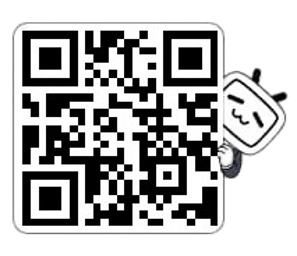




On November 14th, Bai Yunfeng, President of Tomorrow Education Group, delivered a keynote speech on the theme of "Different Ways, Better Education" at the 2017 GET Conference. He raised questions such as "What kind of students do we want to cultivate?" and "Is AI inherently closer to education?" His speech explored Tomorrow's understanding and exploration in the field of "Education + AI", and emphasized Tomorrow's and Xueersi's responsibility as educational technology companies to help children become who they want to be and acquire "life-long benefits". At the same time, Bai Yunfeng shared Tomorrow's persistence in teaching quality since the founding of Xueersi, and used his own growth experience as an example to respond positively to the public's doubts about "hungry marketing" by Tomorrow.

Bai Yunfeng, President of Tomorrow Education Group, delivers a wonderful speech at the GET 2017 Education Technology Conference
What is better education that meets future needs?
In the 21st century, arming students with what abilities to better meet future challenges has become a key focus of the education industry and the entire society. At the conference, Bai Yunfeng first discussed the important factors that determine learning effectiveness, and then emphasized the importance of cultivating abilities. He believes that the learning effectiveness is determined by "learning motivation", "learning environment", and "learning ability". Bai Yunfeng believes that no matter what kind of students they are, if they are to achieve good learning results in the end, they are basically related to these three core support points. The entire K12 extracurricular education is only part of it, because the environment here, in addition to the family environment and social environment, there is also the school environment. The comprehensive factors that affect a student's learning are very complex, and we are a part of it.
We continue to study, the best way to inspire children's creativity is interest and the environment is an important guarantee for children's healthy growth. Capability needs to be guided and constructed based on interest and environment. So how should we build such capabilities that can cultivate more outstanding children in the future to meet the challenges of internationalization?
So, the second thing is, Tomorrow has precipitated the six abilities that K12 students need to develop in the past year and a half. These six abilities are valuable guidelines and support for the research, development and underlying system development of our education, research and development and feedback process that brought about changes in the research and development of our teaching systems, teaching processes, and learning feedback processes. Of these six important abilities, three are related to our learning ability:
l Reading ability, the ability to learn from books;
l Communication ability, the ability to communicate between people;
l Inquiry ability, the ability to discover regularities from things.

If we describe the human brain as a highly intelligent AI, actually for a person, for a student, his ability to respond to the challenges of this society in the future is nothing more than two core factors:
l Knowledge acquisition ability;
l Calculation ability (throughput ability).
We regard input as reading ability, communication ability, and inquiry ability. What does he output? We hope that future students will have the ability of abstract thinking, so that they can discover the essence through phenomena. We hope that they have the power of speculation, can express different viewpoints through different things, and in the process of thinking, can form subjectivity and active creativity, and solve the seemingly difficult problems in the future world. I think that girl just mentioned would possess these six abilities very well.
Let us look at the United States, in fact, in the beginning of the 21st century, American pedagogical scholars had already researched which abilities students should possess in the future, they called them the 4Cs. The 4C abilities actually correspond to the six main abilities, or we might call them interrelated. China had not fallen behind. In the "Core Literacy Report for 21st Century Chinese Students", it clearly stated what learning capabilities, perceptual sense, and the ability to explore things students need to be equipped with for the 21st century. Throughout this process, the rational thinking, aesthetic emotions, criticism and skepticism they mentioned are the most obvious features distinguishing humans from machines when AI arrives.
Third, Is AI inherently closer to education?
The second story I want to share is related to me. Let us go back to 10 years ago, when the founders of Tomorrow were still teaching on the frontline. It's a period that I remember very clearly, it may be the happiest time of my personal growth process in the past 15 years.
Because, in a small classroom, you can have a good interaction with students and feel the return from their eyes, but there were also a lot of pain during the process. At that time, the Xueersi course was not available, so several of our founders were still teaching on the frontline. In order to have time to do the background teaching and research work, I taught 5 classes in the frontline at that time.
However, after teaching 5 classes, many of the teacher's classes were already full, so the students began to spread the word and say that we should sign up for that teacher's class. In the end, many parents called and come to the door, "I just hope Teacher Bai can open another class." After discussions, I agreed, and it turned out that there was a group of students who came and said, "I hope Teacher Bai can open another class", and I ended up teaching 9 classes a week. 9 classes mean what? Our class is 3 hours, basically we are full, except for the day when we're working, we're all occupied on weekdays, evenings and weekends.
This made me very fulfilled, because I taught the best students in Beijing. I could feel the joy in teaching the students from the bottom of my heart. However, every time when I finished the ninth class on Sunday night, I would need to rest for two days, and I couldn't speak until around 11 o'clock on Wednesday morning. 27 hours of standing upright, and high-intensity teaching interaction, this kind of interaction has had a significant impact and harm on our body.
I remembered something in 2002 that had a deep impact on me when I entered this industry. There was a famous special teacher in Beijing, named Sun Weigang. He was a very outstanding expert in the basic education research of K12. He trained 22 Tsinghua and Peking students from a regular school, which was very impressive. But his life was short, he passed away in 2002.
At that time, I was thinking, after teaching these 9 classes, how long can I sustain? Every week, to meet the needs of students and parents, my body has been very tired. I thought, if I had a microphone, it would be better. I discovered that the microphone is a very simple AI, which helps teachers continue teaching continuously. Later, we had given microphones to some outstanding teachers in the hope that they could maintain their continuous teaching state, because humans are made of flesh after all.
Not long ago, we saw that many media were paying close attention to the K12 industry, some parents and scholars have criticized Tomorrow's mastery of "hungry marketing". Actually, I really hope to understand what "hungry marketing" is, I really don't know what "hungry marketing" is, because until now Tomorrow hasn’t spent a cent on advertising. If we come to set out our failures or imperfections, it is because education is still too humanized. When education is an industry of the focus on people as the main factor, the truth is, we need to cultivate, discover, and replicate to achieve our lowest standards for choosing teachers.
We have done everything we can, but the prerequisite is not to reduce the standards and quality of education. We have already spent a lot of time and effort on training and discovery, but we still cannot meet the expectations of all parents and students. I really do not know what "hungry marketing" is, but I want to say, every single teacher of Tomorrow and Xueersi should have what we in our hearts think of as standards in teaching.
Just now, after talking so much, I just wanted to say one thing. If what happened ten years ago happened today, we finally saw the hope. We found that the Internet + education did not change the essence of education, it simply carried out the so-called remote transmission of resources and did not expand the length, width, and height of excellent educational resources, but AI has come. We really have a chance to replace the so-called repetitive, programmable and repetitive practice modules in the teaching process with a better way for teachers, to improve efficiency, and to focus on emotional interaction, personalized guidance, and the development of creative thinking. I think this is a very wonderful thing.
Regarding AI, there are three topics that people often ask me, how can the combination of AI and education change the industry? First, let’s talk about the maturity of AI in the industry. Here, I have drawn a chart. There is a curve starting from the upper end, and what AI is currently changing the fastest or going the deepest into are three areas: search, e-commerce, and social networks. There are excellent companies in China and abroad, such as Google, Baidu, Facebook, Tencent, Alibaba, and Amazon.

But you will find that the depth of AI's use in the industry is very limited. for example, in the virtual assistant field, Microsoft has Xiaoice, Baidu is doing Dumi, Apple is doing Siri, everyone hopes to have an AI assistant, so it is very close to AI, at least currently it is closer to AI than education.
Then, let's look at the domain of automatic driving, which has been very popular in the last two years, almost everyone related to the driving industry is researching this area. However, we also know why automatic driving looks so exciting and makes many people eager to try, but why hasn't it been widely popularized?
On May 6, 2016, the first accident by a self-driving car happened in Florida, where the driver was killed on the spot, you should know about that. Later, the U.S. government and Tesla released a report: we found that due to the lack of a reaction to light and the front (when a large truck came, the Tesla was in driving mode), it collided directly with it, and the driver died. In fact, you should be tolerant, because the so-called fatal accident only occurred after a self-driving car had driven 1.3 million miles, and a traffic accident would occur every 9500 miles in human driving. So, automatic driving is safer than human driving, do you agree with that?
The core issue here is fatal. If the AI's automatic driving functions have been formed during the process of collecting all the elements and data for light-sensing reactions, and the model is trained, if its accuracy is 99.99%, would you drive? Because that 0.001% could be fatal.
So, in our discussion on AI in the research and discovery process in industries, we found that actually why do some people ask me, isn't AI close to education? I say AI is close to education naturally due to two reasons:
1. There is better tolerance in the education scenario. I just gave an example. It should be understandable what I meant. In the learning iteration process, we actually allow for tolerance. We don't need to reach 99.99%. As it’s in the entire learning interaction process, there would be 90% which would be remarkable, it is not that fatal, unlike medicine and automatic driving, so I think it is very close to the education industry.
2. In the entire teaching scene, whether it's a public school or extracurricular education, when the elements of a classroom are recorded by sensors, whether it's sound, language, or text, there is a chance to be taken out into a so-called convergence model. In the industry, the underlying algorithm of AI has already been widely used. But the education industry has a lot of natural convergence and controllability compared to other industries when it comes to collecting data complexity.
So, we believe that AI+education is close to singularity.
Fourth, will teachers be unemployed in the future?
Someone might ask if teachers will be unemployed, but in fact, I have already partly answered that. For large organizations, and for a large educational company, I think that the greatest value of AI lies in increasing human efficiency and in redefining the division of labor between people and machines in the field of education, and in leveraging the value of both people and machines.
Throughout the whole research and development process, Tomorrow has focused on extracting data based on the environment and teaching scenarios, combining the efforts of professionals and scientists with engineers to produce underlying data. Throughout the entire academic application layer, we are actually investigating so-called interactive education, based on educational concepts such as educational gamification, and we are using AI in teaching content.
Here are two examples, this is our Magic Mirror system, which participated in the "Development of the Five Years" large achievement exhibition, and attracted a lot of interest and attention. This is a real classroom scenario, in which we can capture the state and reaction of every student in the classroom learning. Perhaps his accuracy is not 100%, when a student is looking down, we will consider he is doing his homework, through the collection of data about his pen and hand movements. This may surpass human capacity in this respect. Therefore, we have invested a lot in collecting data in the classroom scenario.
We are experimenting to detach some of the core elements from teachers’ language expression, message transmission, and bodily interaction, and see which elements that can be efficiently iterated in the teaching interactive process, or can be efficiently perceived by the students.
There is no doubt that we all hope that every student can get personalized and attentive opportunities. However, outstanding teachers who can provide a very good interaction are quite rare. How can we deal with the differences between experience and human efficiency? There are many versions in the industry, such as one-on-one mode, which is likely the most personalized, but its efficiency is very low.
We now have online one-on-one, face-to-face small classes, offline small classes, dual-teacher models, and the face-to-face and online large classes that we are currently doing…we found that the biggest pain and contradiction is how to provide personalized learning opportunities for students, while also increasing the efficiency of outstanding teachers. How do we solve this issue? Throughout the entire process, we found an alternative path, that is, dual-teacher mode. Although dual-teacher mode has not yet achieved the effect of face-to-face teaching, it is a model with slightly higher efficiency.
For facial recognition, semantic recognition. We hope that we can introduce a unit of such a nature into the teaching scenario. From the bottom left of the yellow line, there should be a chance to go to the upper right of this sector. It should have very high cost/performance, while also providing personalized experience. This is the direction that we will work hard in terms of education + AI.
As a teacher, or an educational worker, I believe that the greatest achievement is not to have students all over the world, but to see his students become the person he wants to become.
AI+education, we are serious.
Thank you!